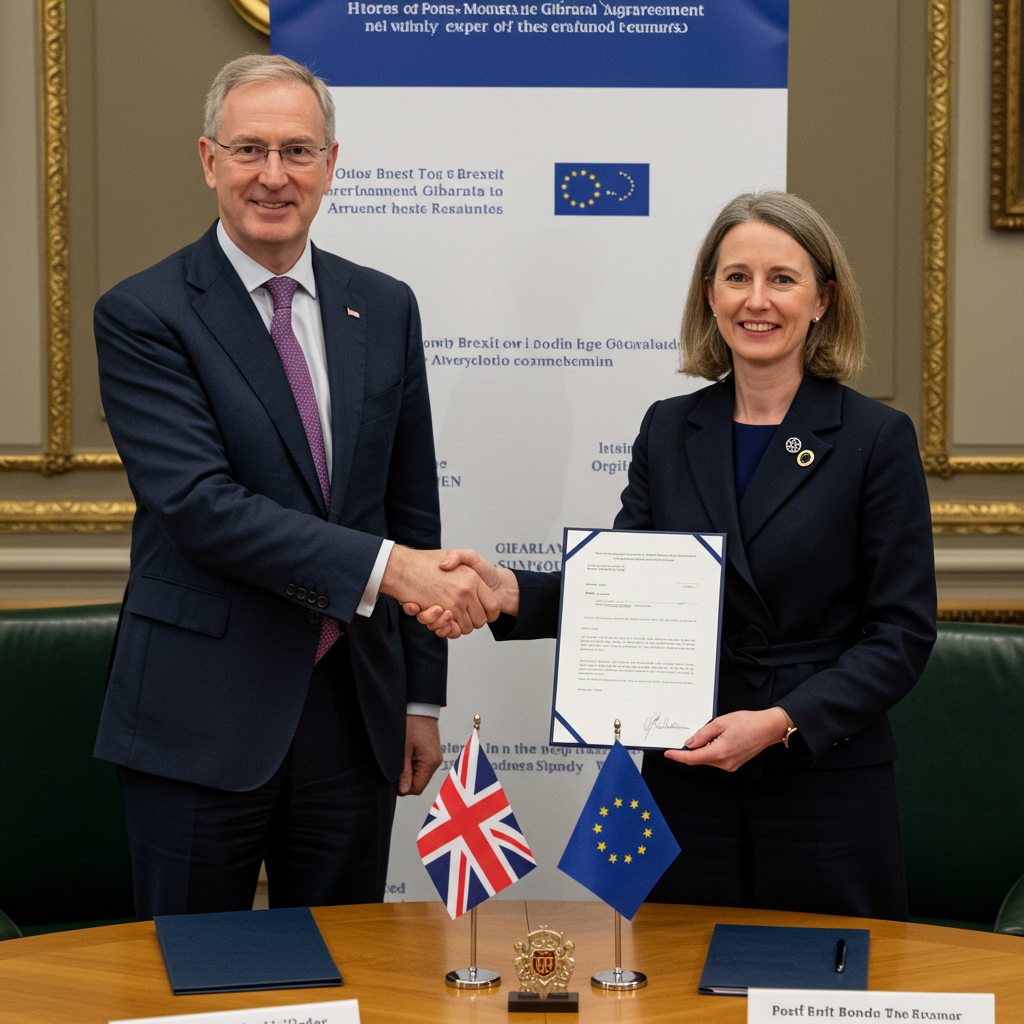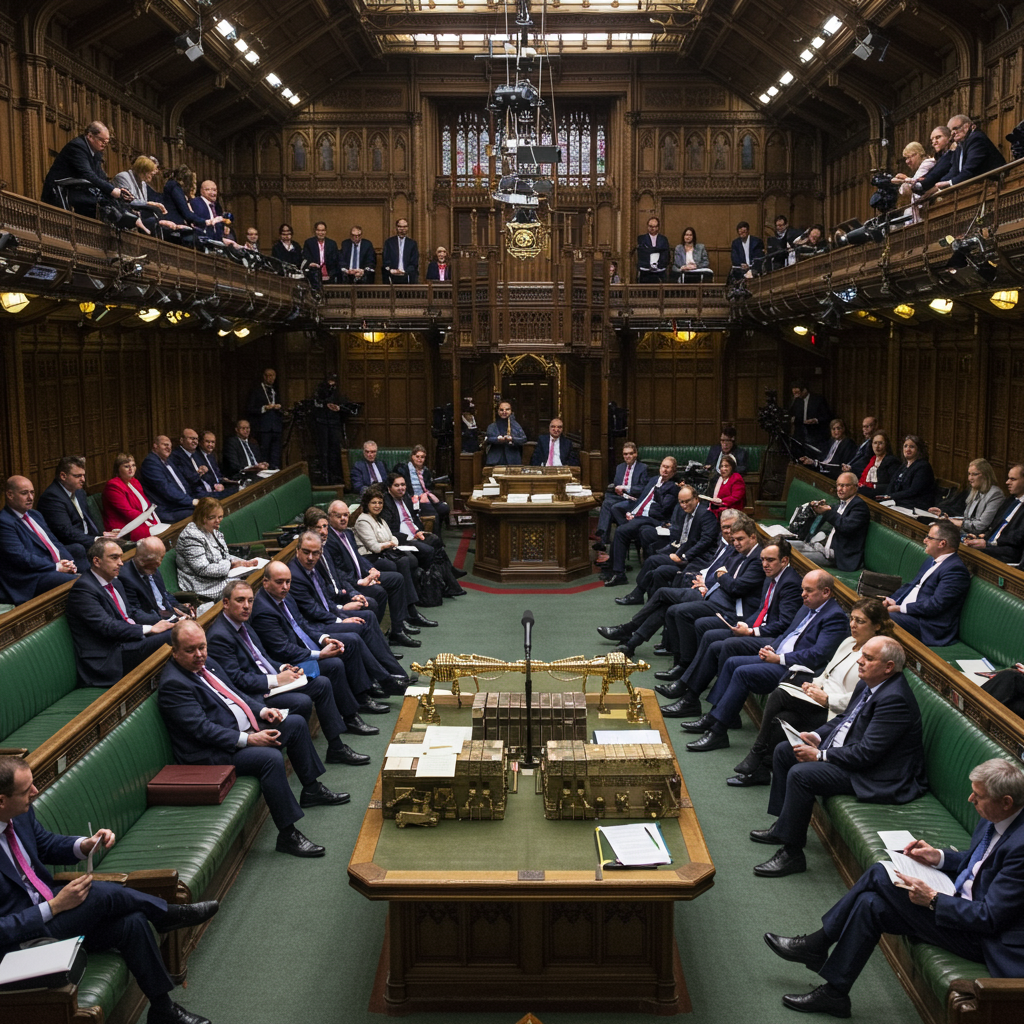Historic Agreement Reached on Gibraltar’s Future Border
A landmark agreement has been finalised between the United Kingdom and the European Union regarding the post-Brexit status of Gibraltar. The deal, reached after extensive talks spanning several years, aims to resolve complex border issues, ensuring smoother travel and trade between the British Overseas Territory and neighbouring Spain.
Described by negotiators as a “historic” breakthrough and a “game changer,” the agreement seeks to dismantle the physical barriers at the land border, which has been symbolically referred to as “the last wall in continental Europe.”
How the New Border System Will Work
Crucially, the agreement will prevent the need for routine checks on people and goods directly at the land frontier between Gibraltar and Spain. Instead, a system of “Eurostar-style” joint border controls will be implemented within Gibraltar itself, specifically at the airport and seaport.
Under this arrangement, officials from both Gibraltar and the Schengen area (overseen by Spain) will conduct entry and exit checks side-by-side. This cooperative approach is designed to maintain Gibraltar’s close ties to the EU’s Schengen free-travel area and the single market, which are vital for its economy and residents.
For travellers arriving at Gibraltar airport, this means undergoing passport checks by both Gibraltar and Spanish officials. Spanish border authorities would be able to deny entry, particularly for British arrivals intending to travel onwards into Spain and the wider EU Schengen area without further checks. This mirrors the dual control system seen at international train terminals like London St Pancras.
The deal also includes provisions for the removal of customs checks on goods, enhanced customs cooperation between the UK and EU, and specific rules on indirect taxation (such as tobacco) to prevent market distortions. Fair competition principles covering state aid, labour rights, environment, and transport are also covered.
Protecting British Sovereignty
A central component of the agreement, and a key “red line” for the UK and Gibraltar, is the protection of British sovereignty. An explicit clause within the agreed framework makes clear that the final treaty will not impact the territory’s British status.
The deal also ensures full operational autonomy for the UK’s military facilities in Gibraltar, including the airport which hosts an RAF base and is managed by the Ministry of Defence.
Gibraltar, a 2.6 square mile headland, has been under British sovereignty since 1713, though Spain disputes this claim. Public opinion in Gibraltar, home to around 34,000 people, overwhelmingly supports remaining British. A 2002 referendum saw nearly 99% of voters reject a proposal to share sovereignty with Spain, and 96% voted to remain in the EU in the 2016 Brexit referendum.
Political Reactions
The agreement has drawn widespread positive reactions from key players. UK Foreign Secretary David Lammy hailed it as a “breakthrough” that safeguards British sovereignty and supports Gibraltar’s economy, stating the UK’s commitment to Gibraltar is “as solid as the Rock itself.” He added that the government had fixed a situation inherited from the previous administration which threatened Gibraltar’s economy.
Gibraltar’s Chief Minister, Fabian Picardo, welcomed the deal as one that protects future generations of British Gibraltarians without compromising sovereignty, calling it a “game changer” that provides legal certainty for businesses and solidifies Gibraltar’s position in Europe’s economic framework. He stressed he worked “hand in glove” with the UK government throughout negotiations.
Spanish Prime Minister Pedro Sanchez and UK Prime Minister Sir Keir Starmer agreed the deal “unlocks significant opportunities to strengthen UK-Spain relations.” Spanish Foreign Affairs Minister José Manuel Albares and EU trade chief Maros Sefcovic both called it “historic,” signalling a “new chapter” in EU-UK relations and predicting an economic boost for the entire region, particularly the nearby Campo de Gibraltar.
Not all reactions were positive, however. Reform UK criticised the deal as “another surrender,” while the Conservative shadow foreign secretary, Priti Patel, stated her party would scrutinise the full legal text against their “red lines,” insisting that “Gibraltar is British” and any deal must fully safeguard sovereignty, rights, constitutional arrangements, and have the support of Gibraltar’s government and people. Liberal Democrats welcomed it as a step towards a proper trade deal but stressed the need for parliamentary scrutiny.
Looking Ahead
Negotiations have been ongoing since the UK left the EU in 2020, seeking a solution to the border status that became a significant sticking point post-Brexit. An estimated 15,000 people cross the border daily for work and leisure, and concerns were high that the impending introduction of the EU’s Entry/Exit System (EES) could cause huge delays without a specific agreement. The streamlined processes for the estimated 50% of Gibraltar’s workforce who commute daily across the border, including permits and visas, are a crucial part of the deal.
While the core framework is agreed, all parties are now committed to finalising the full UK-EU treaty text as quickly as possible. The agreement will require ratification by the UK and Spanish parliaments, and the practical logistics of implementing the joint controls and new systems will pose challenges requiring close cooperation. Despite these steps, the consensus is that this agreement provides much-needed stability and certainty for Gibraltar’s post-Brexit future.




